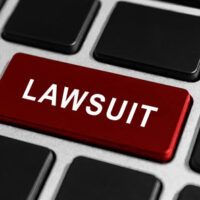Appealing an Adverse Judgment

Not everyone wins in litigation. In a typical lawsuit, one side wins its case and the other side loses. It’s important to keep this in mind when filing a personal injury lawsuit: what happens if the other party prevails?
Having a viable claim doesn’t always ensure success. Sometimes the other party has a valid counterclaim or some legal technicality prevents you from succeeding. But there’s no need to panic if things don’t immediately go your way. Remember that you might be able to appeal a losing verdict.
What Is an Appeal?
The point of an appeal is to review a trial court or lower court decision and determine whether a harmful legal error occurred. A legal error is considered harmful if it affected the outcome of the case. Note that an appeal is not a second trial. You don’t get a second opportunity to relitigate the facts of your case. An appeals court reviews the law and how it was applied to your case; it doesn’t make factual judgments.
(You can also appeal final decisions rendered by administrative agencies.)
Can I File an Appeal?
Losing parties can’t appeal an adverse judgment simply because they’re unhappy with the outcome. Rather, there must be a legal basis for an appeal. If we can identify a harmful legal error in your case then there are good grounds to appeal. An experienced attorney can help determine your best course of action.
Anyone planning to file an appeal must first submit a notice of appeal with the trial court. Generally this must be done within 30 days of the judgment.
The Appeals Process
Here’s what to expect during the appeals process:
After filing your notice of appeal, the clerk of the lower court will send the trial record to the clerk of the appeals court. The record consists of all documents that were filed in the trial court, as well as the trial transcript (if any). This happens within 10 days of filing the notice of appeal. You may tell the lower court which documents to include and which to exclude. If you don’t then the clerk will prepare the record according to court rules.
The appellant (the person filing the appeal) must then submit a written brief explaining the trial court’s error and advocating for a different outcome. The other side will have an opportunity to respond. Sometimes the court will schedule oral argument, which gives both parties a chance to present their cases to the court (judges, not a jury) and answer questions. The court will then issue a decision. Note that the losing side again has several options post-judgment!
Contact Us Today
Contact a Miami personal injury attorney at The Pendas Law Firm today for a free consultation if you have been injured and are interested in pursuing a personal injury claim. We will guide you through the litigation process, from filing the complaint to appealing an adverse judgment.
The Pendas Law Firm also represents clients in the Tampa, Orlando, Fort Lauderdale, West Palm Beach, Jacksonville, Fort Myers, Daytona Beach and Bradenton areas.
Resource:






